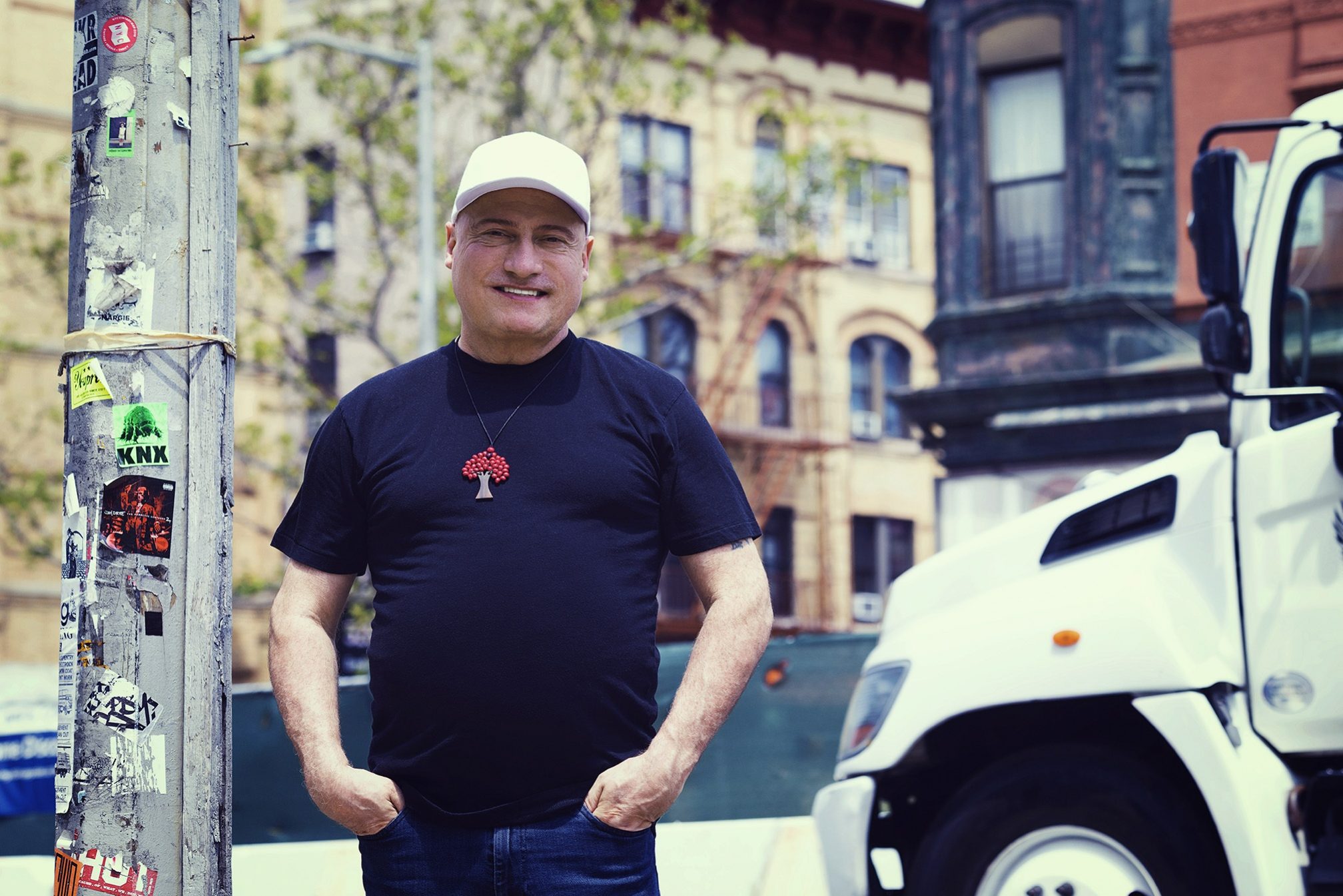 Features
Features
Danny Tenaglia on cancer diagnosis: “You start to think all those things like, wow, is this it?”
Brooklyn DJ maestro Danny Tenaglia talks about his new Global Underground mix, Brooklyn, Miami, London, and how he’s been handling a serious health scare
Danny Tenaglia is in pretty good spirits when we speak on Zoom in September. He’s had a pretty heavy health scare to contend with this year – a routine check found he had early stages of colon cancer. The diagnosis came after a colonoscopy back in May, and while the news was understandably difficult to share, Tenaglia expressed gratitude on social media that the cancer was caught early. In an extremely heartfelt social media post, Danny emphasized the importance of regular check-ups, urging people over 50 to get a colonoscopy and follow-up screenings every half decade. “I've been so blessed [that] I haven't had a single headache since May,” he explains midway through our hour-long conversation. “I don't know how that's possible with me because I'm prone to having headaches. I was grateful because at first I really thought, ‘oh my God, is this it?’ Am I going to lose my hair? Am I going to look sick? Am I going to go?’” Danny had to cancel a bunch of European shows on firm doctor’s orders. but on the bright side, it helped him focus on the main NYC project ahead of him, which was to finish the third in the series of Global Underground mixes that started with ‘Athens’ (GU010), went to ‘London’ (GU017) in the middle and now makes its way to the beating heart of New York City with a new instalemt entitled ‘Brooklyn’ (GU045).
His latest two-hour trick is as assured as you’d expect from the now techno and house-leaning maestro. He’s always ensured that when there’s a signature DT switch, you’re more than aware that things have gone up a gear: and with this mix - after a mellow, melodic 20 minute intro - that’s precisely what he does with Steve Robinson’s fierce ‘No Space, No Time.’ From there, we are firmly in the peak-time with new music from Radio Slave featuring Nez (the sublime ‘Move That Body’), Monika Kruse meets Pig & Dan and DT’s own signature cut ‘Brooklyn Gypsy’, a smart update of ‘Gypsy Woman’ for contemporary club spaces. Recently released on vinyl, it’s all suitably deep, dark and percussive, but that new bassline is utterly fabulous and those Frankie Knuckles-style textures and chords are suitably inspired: to these ears, it’s probably the strongest Danny Tenaglia release since ‘Be Yourself’ and ‘Music Is The Answer’, and a testament to the quality he insists on with his productions, whatever the decade. The second hour is equally emphatic with cuts from David Tort & Tom Stephan and his own Yello-inspired Hot Creations release ‘Don’t Turn Your Back’. We could all do with a few stronger bridges/choruses in our musical soup.
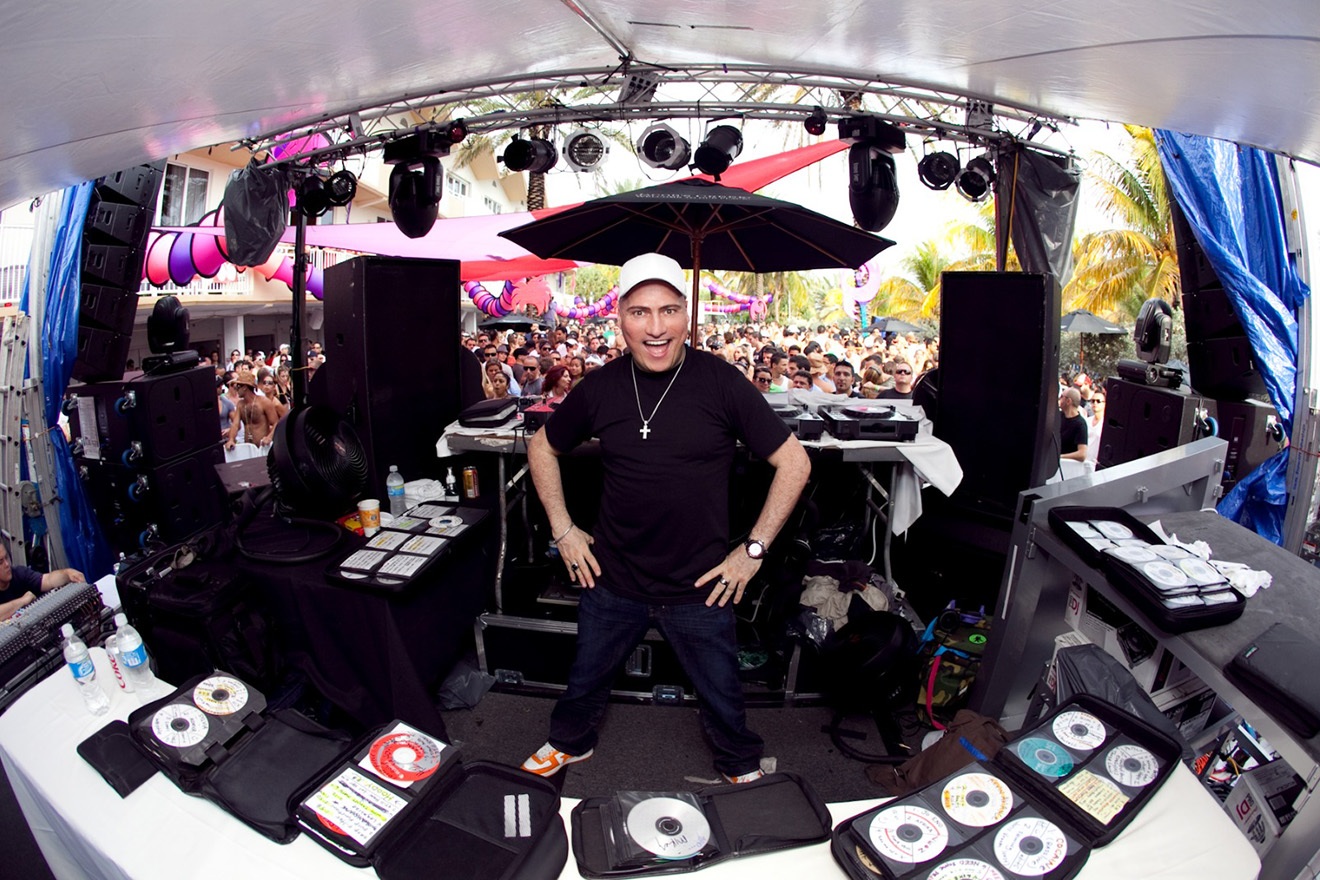
We could start with one of several obvious topics, but let’s start here: how do you approach making a Global Underground compilation?
I mean, I'm sure it's quite similar if I was going to do a Back To Basics compilation, but I understand your point totally because ‘Global’ to me means more global, if you will. And I guess what I really try to get across to the people and let them know is that I'm not just a house DJ. I come from pre-disco right through to the disco era into deep house, and then I started travelling and I have been blessed with being able to travel the world and meeting many DJs and hearing their styles. So I embraced techno and progressive, and the thing is for me to try to help people understand how when I am fortunate, [I like to] do long sets, which was normal for me for many, many years, even when I did the first two. I was a resident at both Twilo [in operation from 1995 to 2001 in New York City and from 2006 to 2007 in Miami] and the Tunnel [which was open from 1986 to 2001 in New York] and I could play there for an average of eight to 10 hours every week. So for me, it's always been a journey since my first original days.
How long did it take you to find all these tracks?
I won't say very long for me to find them because I was combing through my collection and my recent current playlist from the last year or two. I probably had, I'm going to guess, 30 to 40 tracks and some we weren't able to license. And at first I'm like, how's this all going to make sense? It’s like a menu, somehow it all just comes together. I'm not going to compliment it, but I'm happy with the result after being like, how is this going to come out? And it being a tough year for me…
We’ll come to that shortly. But I do like the fact that you end the first side of the mix with the ‘Brooklyn Gypsy’…
Yeah, I didn't even make that connection, Ralph. Ain't that crazy!
You live in New Jersey now but how often do you get to Brooklyn? What does Brooklyn mean to you now?
Well, particularly Williamsburg, where I'm born and raised, had become like the new Manhattan, if you will. Every time I go there I'm like this ain’t Williamsburg! Output was a great example. It was just three blocks from where my father was born in 1929. So my whole history, my parents, my aunts, uncles, everybody was born in Williamsburg. And when I visited, which coincidentally I did last night, I went down to an amazing timeout cafe and we were right where we did the photo shoot for Global Underground. I made a couple of new ones to send to the guys, but when it was time to go home, I showed the people that I’d met up with where I used to live and where I was born and the first club I ever played at, which was called the Miami Lounge. It's now a restaurant, it's still there, intact. But it changed so much and has been so gentrified. It is like a mini Manhattan Lower East Side kind of came over the bridge. But now there's these amazing and very expensive high-rise condominiums and hotels, parks.
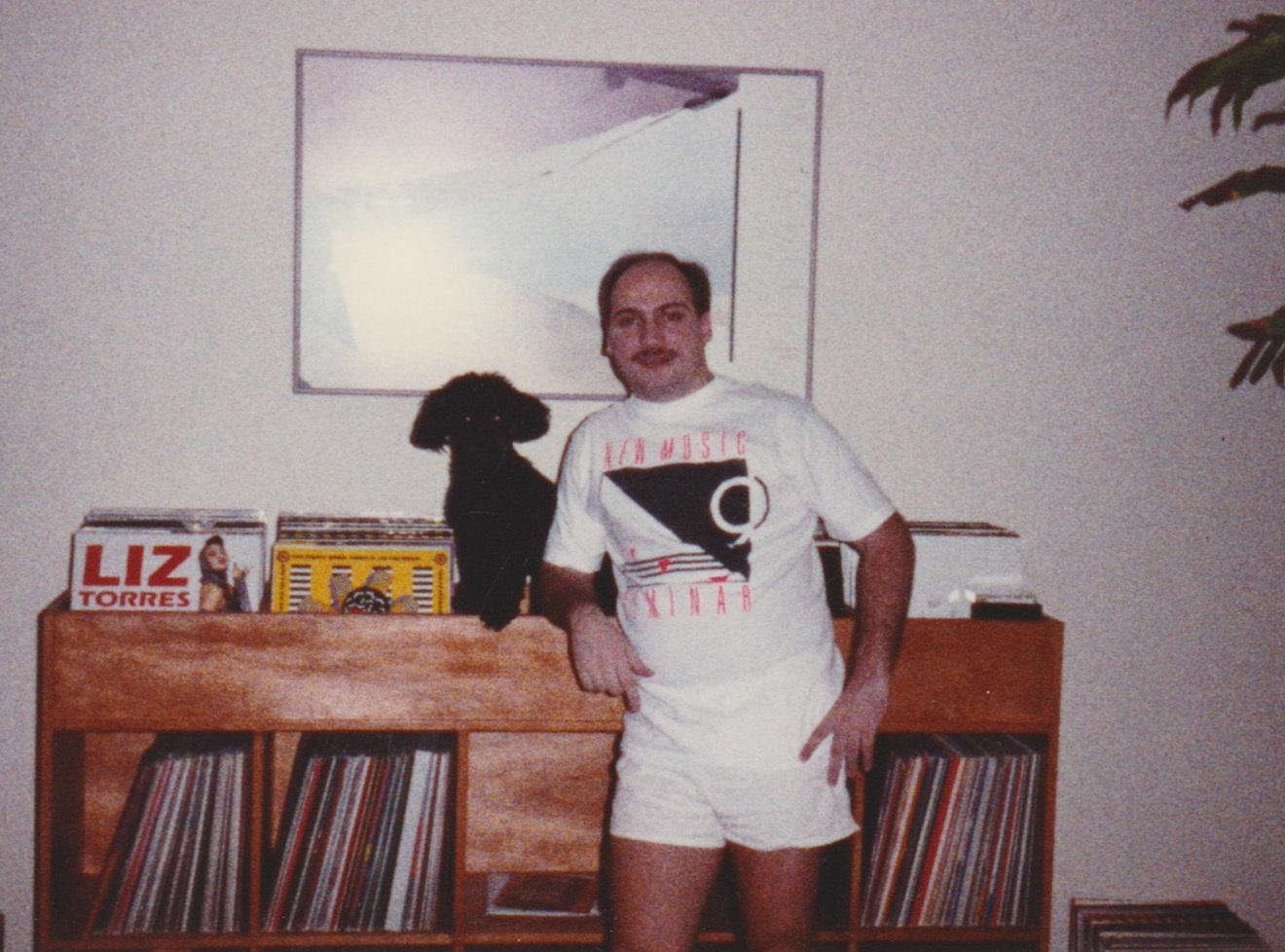
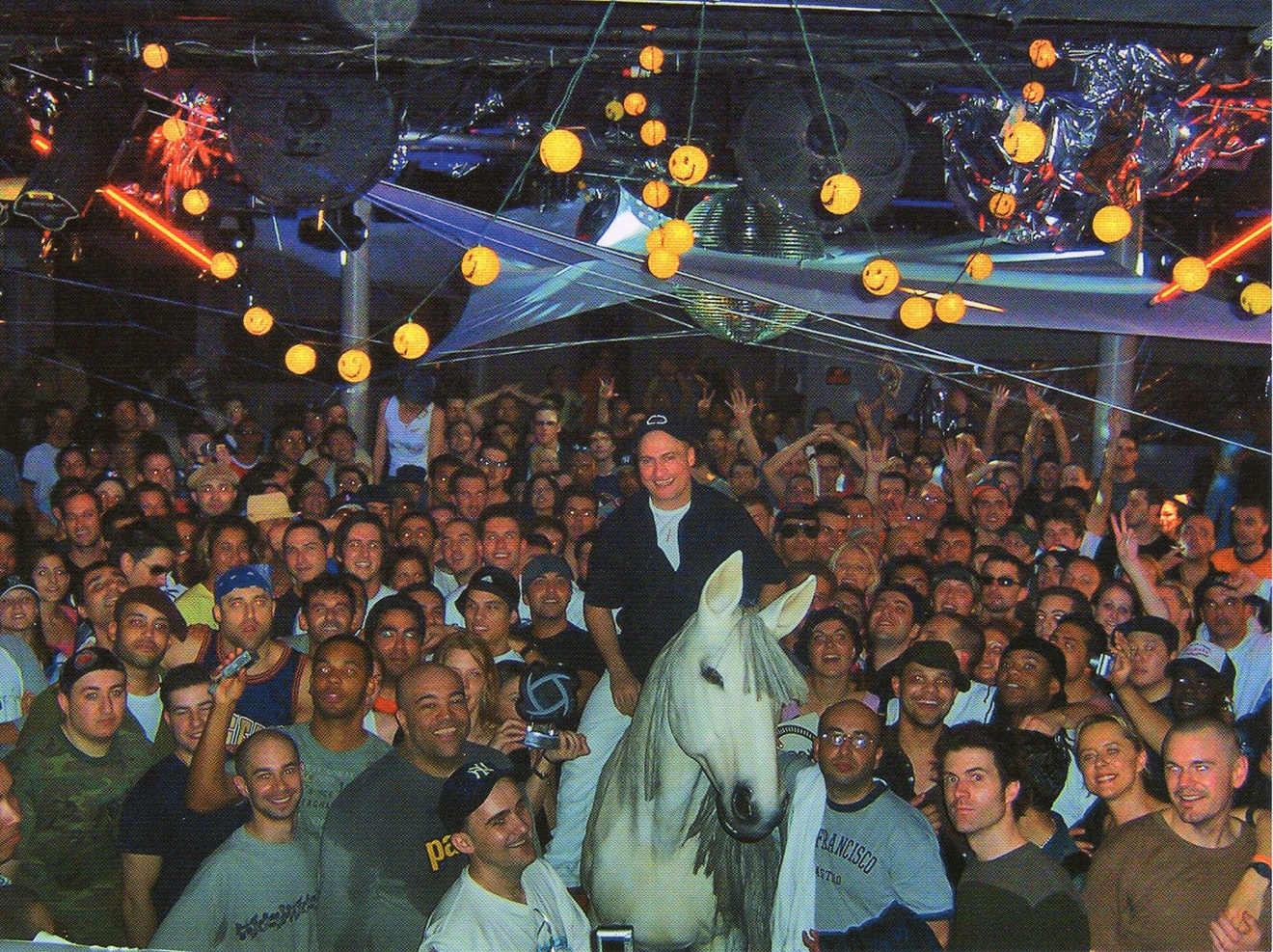
I dread to ask, but are there any of the clubs that you used play that are still around?
I can't say that I ever really recall many clubs being in Brooklyn, they were more like I played at the Miami Lounge. It had a long bar pool table then there was a back room that used to be for bands playing music and a disco ball and people would dance. And then the DJ thing came around ‘75-ish, but as far as any other clubs in Brooklyn, I mean there was the roller disco that I worked at for three years. After that, it was a big theatre for a time then recently became a pharmacy, and now that too is becoming condominiums. So a lot of the new clubs that are there in the Williamsburg/Greenpoint area were not there when I was younger. And then of course now we’ve got The Good Room, Brooklyn Mirage, Knockdown Center, all of them. They're just a mile or two up the road of Metropolitan. I was born on Metropolitan Avenue and as soon as you drive straight up Metropolitan Avenue, once you get over this little bridge that has you into Queens, you make a right, you're at Brooklyn Mirage. We weren't even allowed to walk near there when I was a kid in the ‘70s!
How come?
Oh, New York, Brooklyn in the ‘70s… I guess more than anything the parents wanted to keep us safe from any drug addicts and that type of stuff in the streets. There was a lot of gang stuff, heroin, in the ‘70s and I guess the kids on bicycles and Hell's Angels. Then there were all these little mini gang groups who would wear the jackets with the words on the back with the name of their gang and there was honestly a lot of that when I was a kid. So you went to Bushwick with your bicycle and then you would get grounded. But now it's a lot of young cool people moving in from all over the states but it's not somewhere that I go to walk around anymore these days. It’s just a different lifestyle now for me. But it is cool to see it!
Did your parents understand your early desire to be a DJ?
They sort of semi-understood because of the display I had and love of records, record players, tape decks, little reel to reels. And I tried guitar lessons, I tried piano lessons, but I didn't have the discipline. I was only 10, 11 years old. And then the records started to fall into my hand with the concept of two turntables 50 years ago. I was only 12, 13, when I discovered hearing a DJ like, ‘what's that?’ But the problem was that it was affecting my school and I was still in junior high, going into high school and I was not interested. I was obsessed with records, and still am, and music and what was going on, things that I was still too young to even appreciate but would hear about big nightclubs because that's when I heard this eight-track tape. Paul Costella mixed DJ tapes and I was fascinated with how he was mixing two records together flawlessly and consistently, continuously.
Do please go on!
And I'm just asking my cousin, ‘how does he do that?’ And they explained to me that there's a nightclub and instead of a band, they now have the DJ. And I just felt like this is what I want to do. So I just pursued trying to understand it. We didn't have YouTube back then to see what people were doing or how they were dancing, et cetera. Anyway, I started failing in school and I told my parents I wanted to drop out and of course they didn't want to hear that. And thank God I’d never been arrested or brought my parents trouble of any kind except the fact that I wanted to drop out of school, because now I was in a high school and it was so completely different from our Catholic upbringing for the first six years and then seven, eight, nine, 10 was like all this mix of whatever. There were fights in school, people would be smoking pot in the bathrooms. It was kind of out of control, nothing I was used to. So it came down to that, my parents were asking me, ‘what do you mean you want to be a DJ?’ They would say ‘like Cousin Brucie and the guys that are on the radio?’
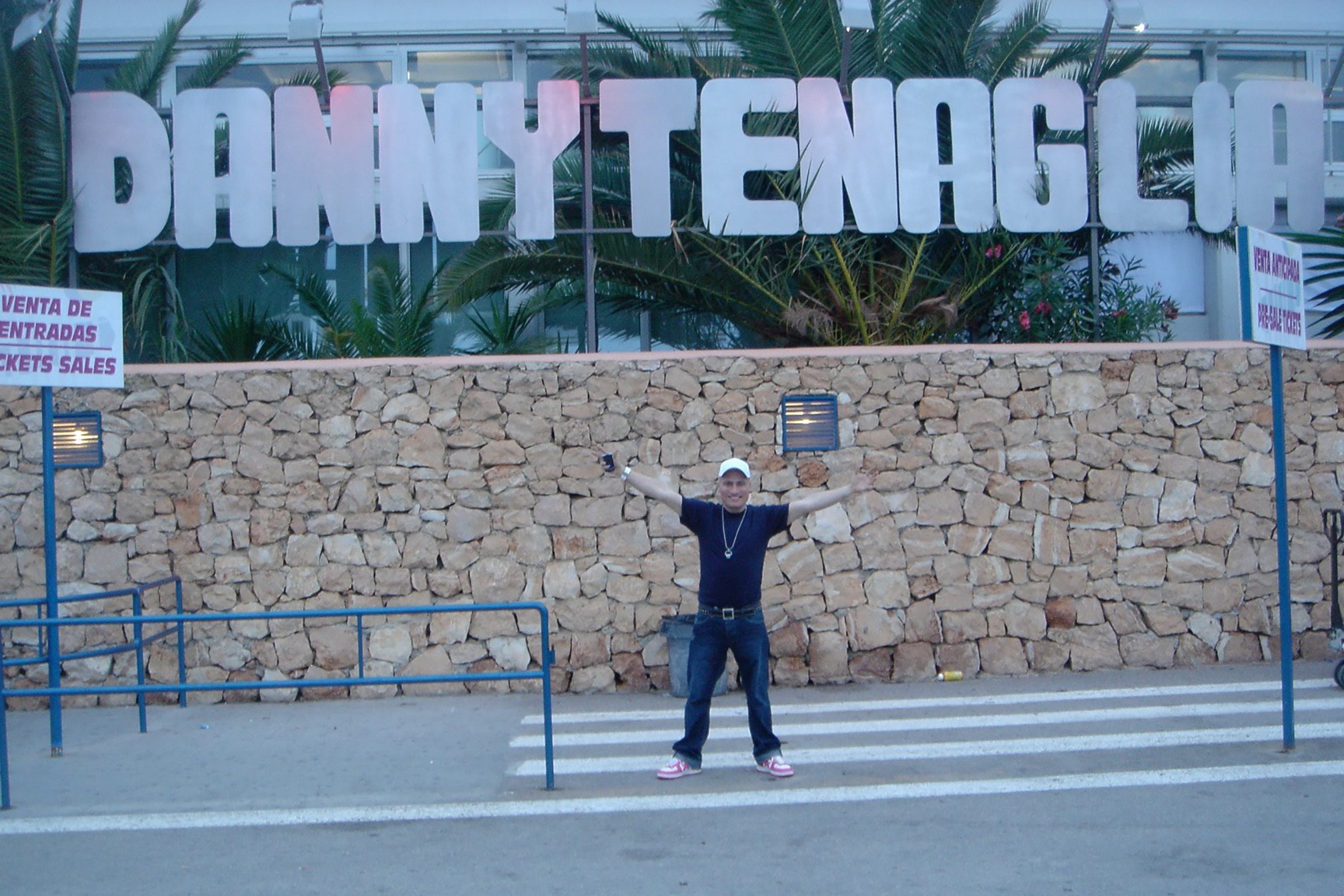
Would they have known about someone like Wolfman Jack?
That was the other name I was going to say and I'm so glad you said that! It was either Cousin Brucie or Wolfman Jack. And while I really can't remember great detail, I can tell you that it was shortly after my 16th birthday that I got turntables and a mixer and then I played at one of my brother's proms from the school that I dropped out of, that was in one of my first gigs with speakers that kept blowing out because thee amplifier couldn't handle it. Everybody's screaming at me. And then I got chaperoned at the Miami Lounge by two older brothers and some relatives. It was just four blocks away and my parents said, you better have him home by 1:AM, that was it. They really saw how I was studying being a DJ as if I was in college. It was just, if you start with the ‘70s, which is what we're talking about, we better have him home by 1:AM.
Fast forward to when I first met you and saw you play, which was Miami where you wouldn't rock up at a club until 1:AM and that was still early. You’ve seen the entire day and night and back to day spectrum!
Totally, I've seen it all and I've been blessed to have learned from the best. But again, being such an avid fan of it all, I was going everywhere. I was going to all the different clubs. Once I turned 18 and was allowed to cross the bridge, I would go to every type of club because honestly back then in the ‘70s and probably early ‘80s, we had options seven days a week. I'm not going to say that the Paradise Garage was open, big clubs like that during the week, but some others were like The Underground. There was Jellybean Benitez at The Fun House on the weekends. We had the Inferno, which Kenny Carpenter came out of. This was all late ‘70s and there were many more. Starship Discovery was a club on 42nd Street, and I never ever heard anybody talk about this place, but it was so influential on me because I was going there before I went to The Garage. My friends in the neighbourhood knowing how passionate I was about being a DJ, they're like, Danny, you got to go to The Paradise Garage. And I'm like, well, you got to be a member! Of course, once I went to The Garage I understood and I was immediately flipped. But again, I went everywhere. Everywhere. Gay clubs, straight clubs. There was the colourful side of things. That's probably the ‘80s when groups like Deee-Lite came around and it was like a love fest. I don't quite know where I'm going with all this, but to just say that in the ‘90s, I started working at Twilo in ’96 and we started bringing over all the global DJs like Sasha, John Digweed, Tony De Vit, everybody. So I got to meet them, hear them open for them, close after them.
When did you first meet Carl Cox?
I would say probably at the Winter Music Conference, that would be my guess. I'm not sure exactly as there have been so many conferences. I participated in every one since 1986. We're very similar in age. I'm only one year older than Carl, and I think our history and our roots, our upbringing come from that love of music. And then we became DJs and it just evolved. But I think we have a similar evolution with all the changes that happened within the music scene. My first recollection of playing with Carl was with him and Jim Masters at an underground place in Soho [in London] called Ultimate B.A.S.E.
At The Velvet Rooms on Charing Cross Road.
It changed my life!
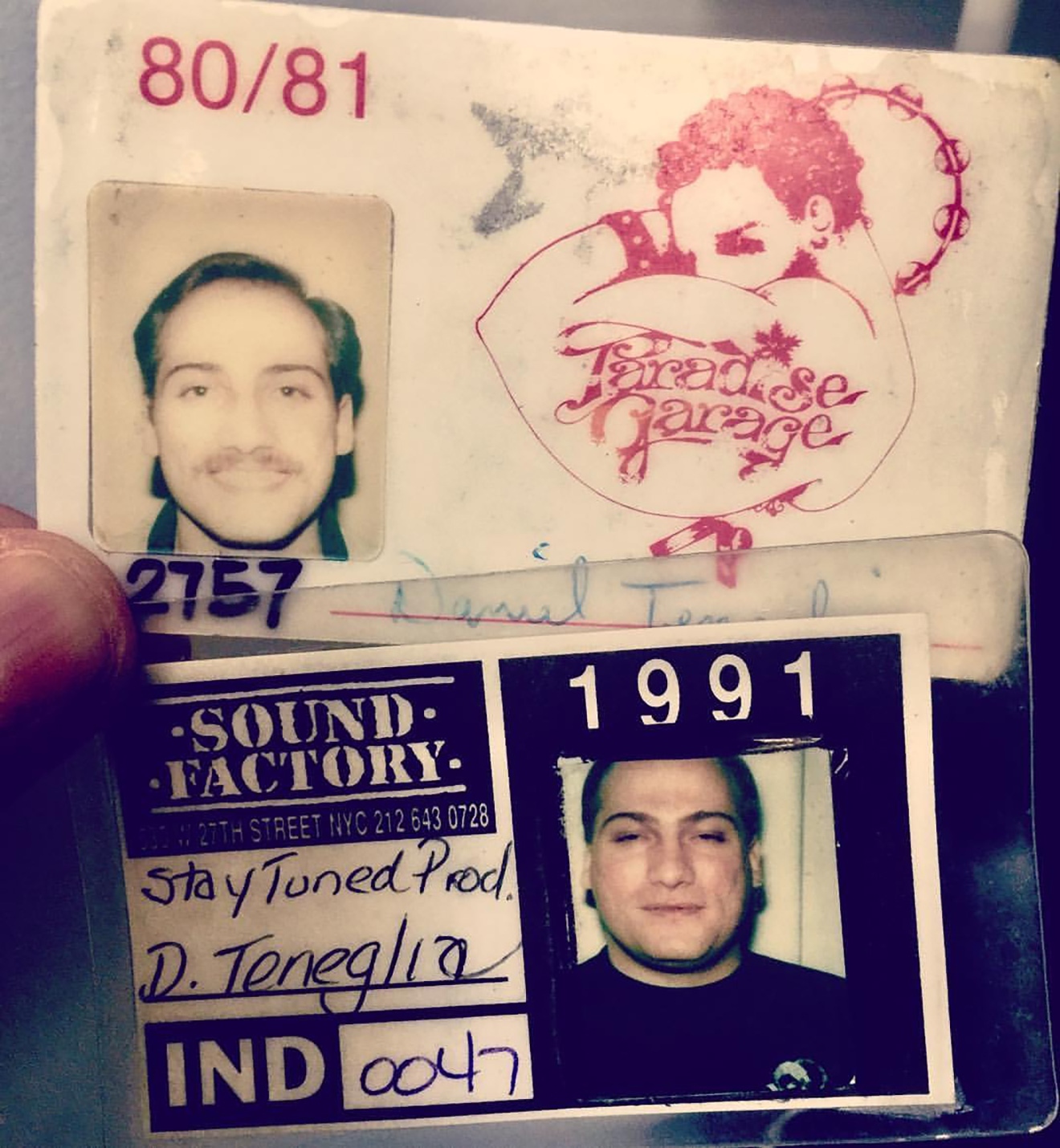
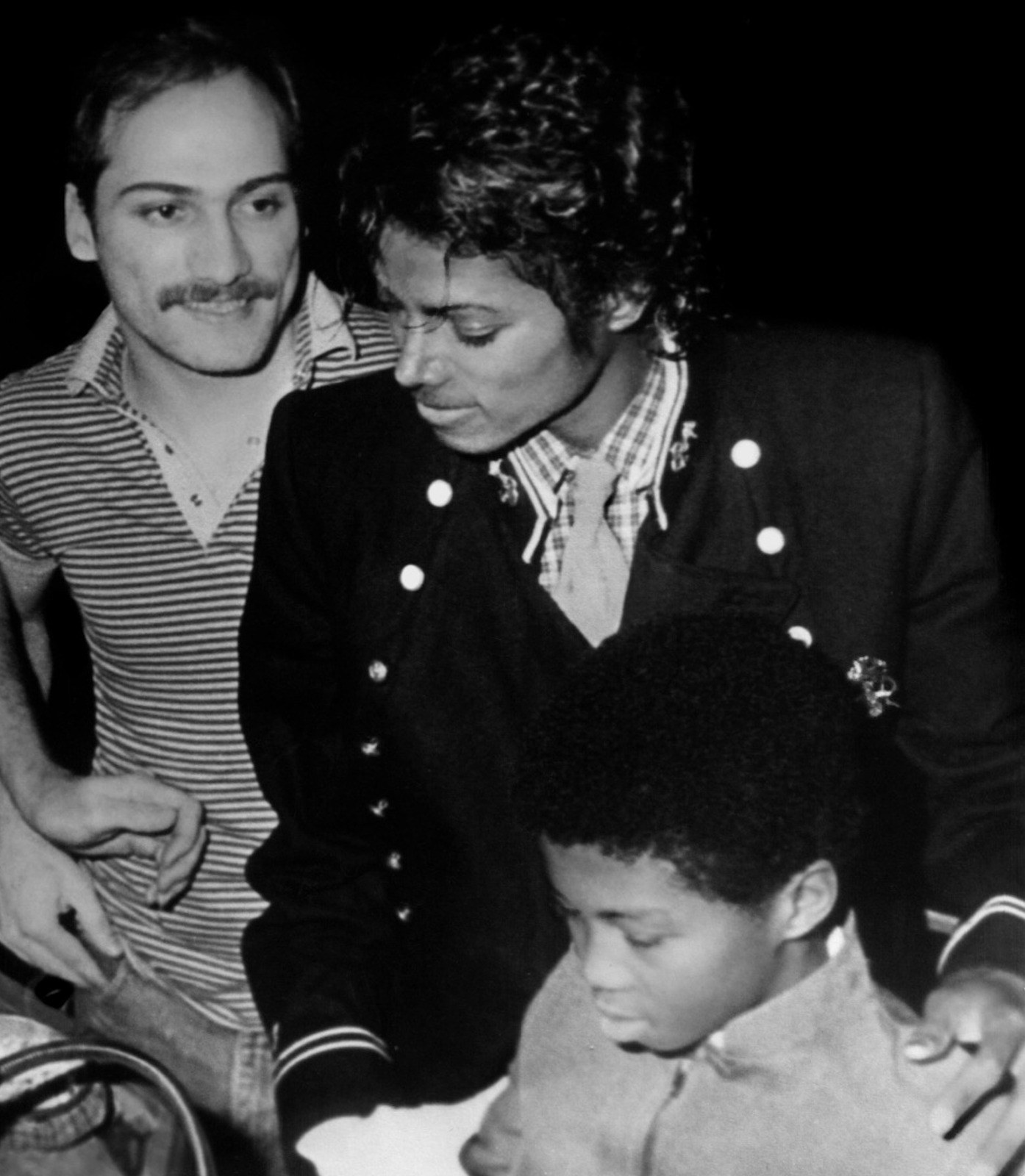
What was Winter Music conference like in ‘86?
Oh, man. As we're mentioning and talking about, I was born and raised in Williamsburg and I lived in the same apartment for 24 years. And then I moved to Miami and I stayed there for five years. We were doing showcases with artists like Taylor Dane and Mantronix and people who had hit records like Joyce Sims with ‘All And All’. I was working at a club called Cheers and we were also the only club licence to stay open until 6:AM whereas everybody else had closed at 3. So we were the after hours, people would come from other clubs, industrial clubs and it was just a crazy mixture. So people were thinking I was from Miami, but I got to admit it was Miami during the conference that put me on the map.
When did you realise that the UK was important to your career? Can you remember your first trip?
Totally. I'm glad you asked me this question because I don't think I've ever told the story. While I was living in Miami in 1988, I went to London as a tourist. I had never been overseas. It was my first time leaving the country and I hit the record stores, I can't remember their names right now, but what I can tell you, what changed my life on that trip was going to see Paul Oakenfold, I don't remember what the club was called. And Paul had known of my name from the Deep State record that just came out on Atlantic Records (Deep State ‘Waiting For A Call’) and he had just played A Guy Called Gerald ‘Voodoo Ray’ and ‘Talking With Myself’ by Electribe 101. So I actually went up to the DJ booth and I introduced myself to Paul because when he was playing ‘Voodoo Ray’, I just had to know what it was. Wow, I’ve got goosebumps telling you this story…
And you were only there as a tourist.
And I got to remix it one day! So I met Paul, who was very kind and told me what he was playing and I came back to Miami with all these records and found a new joy and appreciation for what I do as a DJ. Of course, it wasn't an immediate hit and back then I was really struggling in Miami, because Miami in that era of the ‘80s was freestyle and disco, that was just the mentality there. But luckily around that same time, groups like Peech Boys, Whitney Houston, Madonna, Depeche Mode, all these records were now coming out with remixes, house remixes from Shep Pettibone, Justin Strauss, all these famous names as well as British people like CJ Mackintosh and that helped me go from something corny to something cool.
So would you say you were an American with a soft spot for British club and pop music?
Honestly, I speak about this now to my local friends about how even though my childhood was mostly very funky and soulful via Motown, Philly, James Brown and all that funky stuff, I also appreciated a lot of the British bands and I still do today. Like everybody would say The Beatles, Pink Floyd, Led Zeppelin, Cream, they were mostly probably the main four bands that I could still listen to today. A lot of their songs are like classics to me.
We’ve come a long way from Danny playing behind those mysterious curtains at Home in Leicester Square.
I was very shy about things.
You probably wouldn't have even wanted a photographer in the booth back then but now a lot of people might think if I haven't filmed you playing a record I love, the moment maybe didn't happen.
Yeah, I'm not totally against it! Again, I was shy back then. I wasn't used to the concept of being filmed as a DJ or having pictures taken of me. I guess I just didn't feel good about my appearance. I did fix my teeth and that helped me a lot. I lost weight and just took better care because those studio sessions, they were even more marathons than nightclubs. I was telling people recently that sometimes I was in the studio for like 30 hours at once, because let's say you have a two day block on a studio room and you're doing your parts and then you're going to go into mixing mode. If they tell you, listen, C + C Music Factory is going to be here at 2P:M, my point was that you might just go to the lounge and snooze a little bit, but you still had to get back there. Just one more pass, got to do the instrumental now!
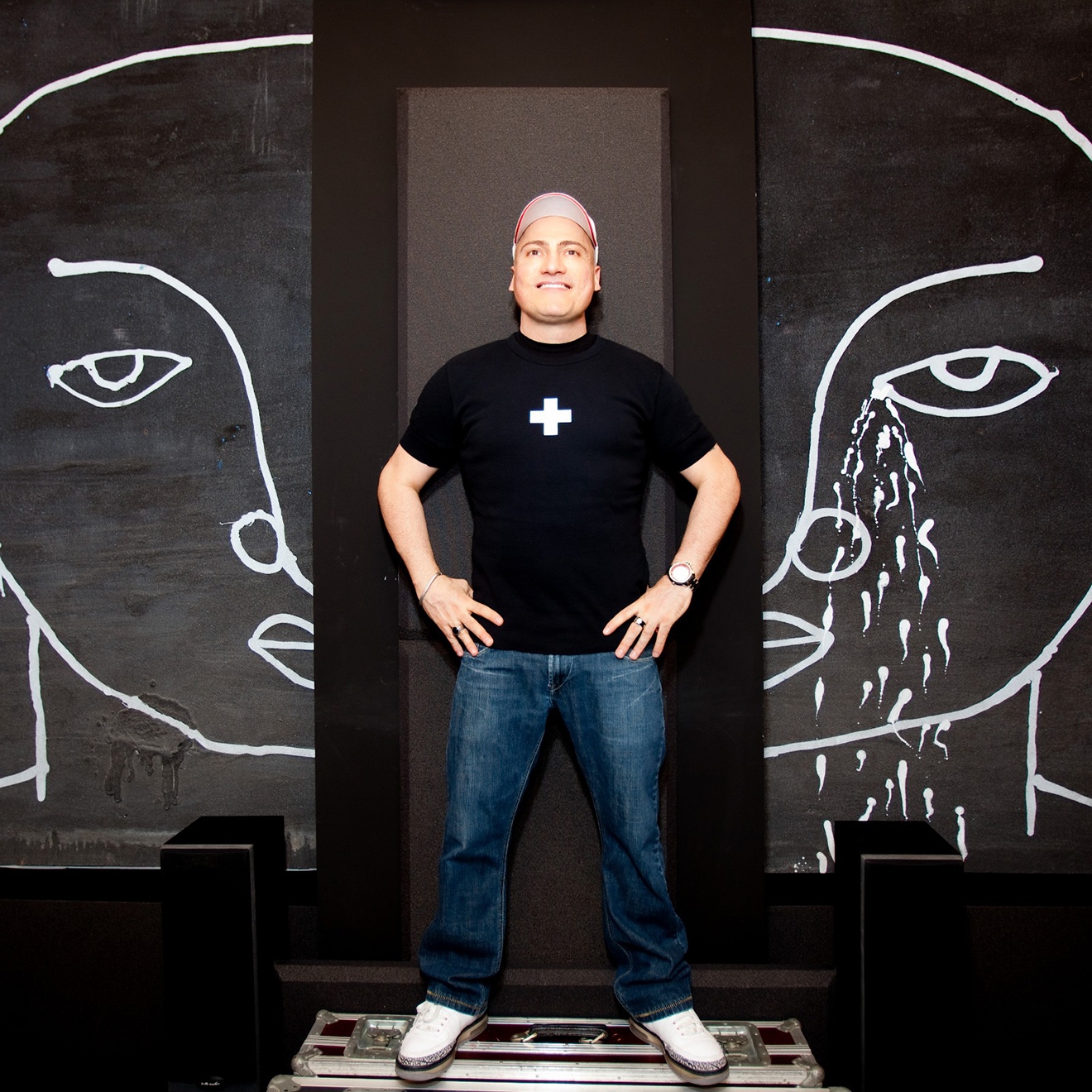
To close, we wanted to talk about your health because you've been quite open about it. I saw you cancelled a bunch of shows and that was on doctor's orders, wasn't it?
Oh, totally. I had to! It was back in May that I had a routine check-up. At my age, you go through your routine colonoscopy after 50. And the last one that I did, the doctor discovered a cancerous tumour and suggested to go see an oncologist, which I did. And they did the MRI scan and then they put me on their routine, suggesting six weeks of radiation and chemotherapy. And I got to tell you, I've been so blessed [that] I haven't had a single headache since May. I don't know how that's possible with me because I'm prone to having headaches but during these treatments, I didn't get fever, chills, loss of weight, loss of appetite. The only thing that affected me was the actual radiation and chemo because it does a number on you down there, I ain't going to lie! That's why they don't do new tests right away because they still consider that the radiation is doing its job and you're still inflamed. So I won't do any new tests until December, but I'm feeling confident. I was grateful because at first I really thought, ‘oh my God, is this it? Am I going to lose my hair? You start to think all those things like, wow, is this it? Could this be it? Am I going to look sick? Am I going to feel weak? Am I going to go?’
You look great!
For what it's worth, I thank you and thank God for that. I'm saying I really was under the impression that I was going to go through it and I didn't want people to see me like that, but I stayed home, I rested, I started eating really good. It was a time to spend a lot of time at home, reflect on my past and go through my equipment, go through my record collection.
Any final word?
I want to thank James and everybody at Global for giving me this third opportunity. I'm grateful for everybody like yourself that appreciates it. So thank you so much for all these years of support!
Danny Tenaglia 'GU45: Brooklyn' is released on Global Underground on November 10, pre-order it here
Ralph Moore is Mixmag's Music Editor-at-Large, follow him on Twitter


